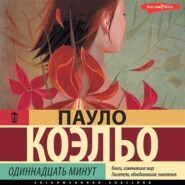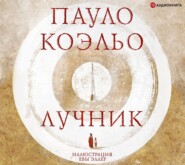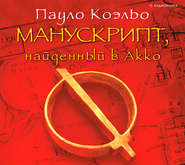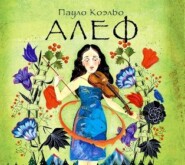По всем вопросам обращайтесь на: info@litportal.ru
(©) 2003-2024.
✖
The Witch of Portobello
Автор
Год написания книги
2018
Настройки чтения
Размер шрифта
Высота строк
Поля
She also became increasingly religious. She insisted on having our son baptised with a name she herself had decided on – Viorel, a Romanian name. Apart from a few immigrants, I doubt that anyone else in England is called Viorel, but I thought it showed imagination on her part, and I realised, too, that she was making some strange connection with a past she’d never known – her days in the orphanage in Sibiu.
I tried to be adaptable, but I felt I was losing Athena because of the child. Our arguments became more frequent, and she threatened to leave because she feared that Viorel was picking up the ‘negative energy’ from our quarrels. One night, when she made this threat again, I was the one who left, thinking that I’d go back as soon as I’d calmed down a bit.
I started wandering aimlessly round London, cursing the life I’d chosen, the child I’d agreed to have, and the wife who seemed to have no further interest in me. I went into the first bar I came to, near a Tube station, and downed four glasses of whisky. When the bar closed at eleven, I searched out one of those shops that stay open all night, bought more whisky, sat down on a bench in a square and continued drinking. A group of youths approached me and asked to share the bottle with me. When I refused, they attacked me. The police arrived, and we were all carted off to the police station.
I was released after making a statement. I didn’t bring any charges, saying that it had been nothing but a silly disagreement; after all, I didn’t want to spend months appearing at various courts, as the victim of an attack. I was still so drunk that, just as I was about to leave, I stumbled and fell sprawling across an inspector’s desk. The inspector was angry, but instead of arresting me on the spot for insulting a police officer, he threw me out into the street.
And there was one of my attackers, who thanked me for not taking the case any further. He pointed out that I was covered in mud and blood and suggested I get a change of clothes before returning home. Instead of going on my way, I asked him to do me a favour: to listen to me, because I desperately needed to talk to someone.
For an hour, he listened in silence to my woes. I wasn’t really talking to him, but to myself: a young man with his whole life before him, with a possibly brilliant career ahead of him – as well as a family with the necessary contacts to open many doors – but who now looked like a beggar – drunk, tired, depressed and penniless. And all because of a woman who didn’t even pay me any attention.
By the end of my story I had a clearer view of my situation: a life which I had chosen in the belief that love conquers all. And it isn’t true. Sometimes love carries us into the abyss, taking with us, to make matters worse, the people we love. In my case, I was well on the way to destroying not only my life, but Athena’s and Viorel’s too.
At that moment, I said to myself once again that I was a man, not the boy who’d been born with a silver spoon in his mouth, and that I’d faced with dignity all the challenges that had been placed before me. Athena was already asleep, with the baby in her arms. I took a bath, went outside again to throw my dirty clothes in the bin, and lay down, feeling strangely sober.
The next day, I told Athena that I wanted a divorce. She asked me why.
‘Because I love you. Because I love Viorel. And because all I’ve done is to blame you both because I had to give up my dream of becoming an engineer. If we’d waited a little, things would have been different, but you were only thinking about your plans and forgot to include me in them.’
Athena said nothing, as if she had been expecting this, or as if she had unconsciously been provoking such a response.
My heart was bleeding because I was hoping that she’d ask me, please, to stay. But she seemed calm and resigned, concerned only that the baby might hear our conversation. It was then that I felt sure she had never loved me, and that I had merely been the instrument for the realisation of her mad dream to have a baby at nineteen.
I told her that she could keep the house and the furniture, but she wouldn’t hear of it. She’d stay with her parents for a while, then look for a job and rent her own apartment. She asked if I could help out financially with Viorel, and I agreed at once.
I got up, gave her one last, long kiss and insisted again that she should stay in the house, but she repeated her resolve to go to her parents’ house as soon as she’d packed up all her things. I stayed at a cheap hotel and waited every night for her to phone me, asking me to come back and start a new life. I was even prepared to continue the old life if necessary, because that separation had made me realise that there was nothing and no one more important in the world than my wife and child.
A week later, I finally got that call. All she said, however, was that she’d cleared out all her things and wouldn’t be going back. Two weeks after that, I learned that she’d rented a small attic flat in Basset Road, where she had to carry the baby up three flights of stairs every day. A few months later, we signed the divorce papers.
My real family left forever. And the family I’d been born into received me with open arms.
After my separation from Athena and the great suffering that followed, I wondered if I hadn’t made a bad, irresponsible decision, typical of people who’ve read lots of love stories in their adolescence and desperately want to repeat the tale of Romeo and Juliet. When the pain abated – and time is the only cure for that – I saw that life had allowed me to meet the one woman I would ever be capable of loving. Each second spent by her side had been worthwhile, and given the chance, despite all that had happened, I would do the same thing over again.
But time, as well as healing all wounds, taught me something strange too: that it’s possible to love more than one person in a lifetime. I remarried. I’m very happy with my new wife, and I can’t imagine living without her. This, however, doesn’t mean that I have to renounce all my past experiences, as long as I’m careful not to compare my two lives. You can’t measure love the way you can the length of a road or the height of a building.
Something very important remained from my relationship with Athena: a son, her great dream, of which she spoke so frankly before we decided to get married. I have another child by my second wife, and I’m better prepared for all the highs and lows of fatherhood than I was twelve years ago.
Once, when I went to fetch Viorel and bring him back to spend the weekend with me, I decided to ask her why she’d reacted so calmly when I told her I wanted a separation.
‘Because all my life I’ve learned to suffer in silence,’ she replied.
And only then did she put her arms around me and cry out all the tears she would have liked to shed on that day.
Father Giancarlo Fontana (#ulink_eae00ec8-4104-511a-b8b8-37463635eadd)
I saw her when she arrived for Sunday mass, with the baby in her arms as usual. I knew that she and Lukás were having difficulties, but, until that week, these had all seemed merely the sort of misunderstandings that all couples have, and since both of them were people who radiated goodness, I hoped that, sooner or later, they would resolve their differences.
It had been a whole year since she last visited the church in the morning to play her guitar and praise the Virgin. She devoted herself to looking after Viorel, whom I had the honour to baptise, although I must admit I know of no saint with that name. However, she still came to mass every Sunday, and we always talked afterwards, when everyone else had left. She said I was her only friend. Together we had shared in divine worship; now, though, it was her earthly problems she needed to share with me.
She loved Lukás more than any man she had ever met; he was her son’s father, the person she had chosen to spend her life with, someone who had given up everything and had courage enough to start a family. When the difficulties started, she tried to convince him that it was just a phase, that she had to devote herself to their son, but that she had no intention of turning Viorel into a spoiled brat. Soon she would let him face certain of life’s challenges alone. After that, she would go back to being the wife and woman he’d known when they first met, possibly with even more intensity, because now she had a better understanding of the duties and responsibilities that came with the choice she’d made. Lukás still felt rejected; she tried desperately to divide herself between her husband and her child, but she was always obliged to choose, and when that happened, she never hesitated: she chose Viorel.
Drawing on my scant knowledge of psychology, I said that this wasn’t the first time I’d heard such a story, and that in such situations men do tend to feel rejected, but that it soon passes. I’d heard about similar problems in conversations with my other parishioners. During one of our talks, Athena acknowledged that she had perhaps been rather precipitate; the romance of being a young mother had blinded her to the real challenges that arise after the birth of a child. But it was too late now for regrets.
She asked if I could talk to Lukás, who never came to church, perhaps because he didn’t believe in God or perhaps because he preferred to spend his Sunday mornings with his son. I agreed to do so, as long as he came of his own accord. Just when Athena was about to ask him this favour, the major crisis occurred, and he left her and Viorel.
I advised her to be patient, but she was deeply hurt. She’d been abandoned once in childhood, and all the hatred she felt for her birth mother was automatically transferred to Lukás, although later, I understand, they became good friends again. For Athena, breaking family ties was possibly the gravest sin anyone could commit.
She continued attending church on Sundays, but always went straight back home afterwards. She had no one now with whom to leave her son, who cried lustily throughout mass, disturbing everyone else’s concentration. On one of the rare occasions when we could speak, she said that she was working for a bank, had rented an apartment, and that I needn’t worry about her. Viorel’s father (she never mentioned her husband’s name now) was fulfilling his financial obligations.
Then came that fateful Sunday.
I learned what had happened during the week – one of the parishioners told me. I spent several nights praying for an angel to bring me inspiration and tell me whether I should keep my commitment to the Church or to flesh-and-blood men and women. When no angel appeared, I contacted my superior, and he said that the only reason the Church has survived is because it’s always been rigid about dogma, and if it started making exceptions, we’d be back in the Middle Ages. I knew exactly what was going to happen. I thought of phoning Athena, but she hadn’t given me her new number.
That morning, my hands were trembling as I lifted up the host and blessed the bread. I spoke the words that had come down to me through a thousand-year-old tradition, using the power passed on from generation to generation by the apostles. But then my thoughts turned to that young woman with her child in her arms, a kind of Virgin Mary, the miracle of motherhood and love made manifest in abandonment and solitude, and who had just joined the line as she always did, and was slowly approaching in order to take communion.
I think most of the congregation knew what was happening. And they were all watching me, waiting for my reaction. I saw myself surrounded by the just, by sinners, by Pharisees, by members of the Sanhedrin, by apostles and disciples and people with good intentions and bad.
Athena stood before me and repeated the usual gesture: she closed her eyes and opened her mouth to receive the Body of Christ.
The Body of Christ remained in my hands.
She opened her eyes, unable to understand what was going on.
‘We’ll talk later,’ I whispered.
But she didn’t move.
‘There are people behind you in the queue. We’ll talk later.’
‘What’s going on?’ she asked, and everyone in the line could hear her question.
‘We’ll talk later.’
‘Why won’t you give me communion? Can’t you see you’re humiliating me in front of everyone? Haven’t I been through enough already?’
‘Athena, the Church forbids divorced people from receiving the sacrament. You signed your divorce papers this week. We’ll talk later,’ I said again.
When she still didn’t move, I beckoned to the person behind her to come forward. I continued giving communion until the last parishioner had received it. And it was then, just before I turned to the altar, that I heard that voice.
It was no longer the voice of the girl who sang her worship of the Virgin Mary, who talked about her plans, who was so moved when she shared with me what she’d learned about the lives of the saints, and who almost wept when she spoke to me about her marital problems. It was the voice of a wounded, humiliated animal, its heart full of loathing.
‘A curse on this place!’ said the voice. ‘A curse on all those who never listened to the words of Christ and who have transformed his message into a stone building. For Christ said: “Come unto me all ye that labour and are heavy laden, and I will give you rest.” Well, I’m heavy laden, and they won’t let me come to Him. Today I’ve learned that the Church has changed those words to read: “Come unto me all ye who follow our rules, and let the heavy laden go hang!”’
I heard one of the women in the front row of pews telling her to be quiet. But I wanted to hear. I needed to hear. I turned to her, my head bowed – it was all I could do.
‘I swear that I will never set foot in a church ever again. Once more, I’ve been abandoned by a family, and this time it has nothing to do with financial difficulties or with the immaturity of those who marry too young. A curse upon all those who slam the door in the face of a mother and her child! You’re just like those people who refused to take in the Holy Family, like those who denied Christ when he most needed a friend!’
With that, she turned and left in tears, her baby in her arms. I finished the service, gave the final blessing and went straight to the sacristy – that Sunday, there would be no mingling with the faithful, no pointless conversations. That Sunday, I was faced by a philosophical dilemma: I had chosen to respect the institution rather than the words on which that institution was based.

















